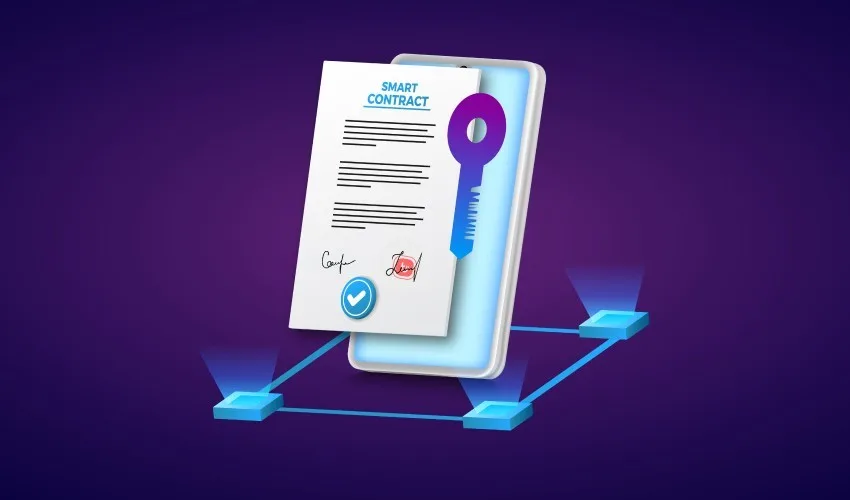
Decoding IT Contract can have significant implications for both parties involved. In the fast-paced world of technology, companies depend heavily on IT support to ensure their operations run smoothly. Outsourcing IT services has evolved as a favored choice, but it’s crucial to understand the intricacies of the IT support contract before signing on the dotted line. This complete guide will step you through the essential aspects of an IT contract, helping you make an informed decision that aligns with your specific needs. In this article we help to understand about Decoding IT contract and where to get the best services.
Understanding the IT Support Contract
While we are Decoding IT Contract so it is important to understand IT support contract. It is a legally binding agreement between you, the purchaser of outsourced IT support, and the service provider. It outlines both parties’ responsibilities, services, and obligations, ensuring a clear understanding of the relationship. When you contract IT support, you’re essentially hiring an external provider to handle the technical aspects of your business.
1. The Importance of Knowing Who Owns the Risk
One of the key considerations when entering into an IT support contract is understanding who owns the risk. It’s crucial to ask yourself a series of questions to gauge the provider’s accountability in maintaining your IT environment:
- Do recurring issues result in increased revenue for the provider?
- Are you responsible for paying the provider to restore data in the event of data loss?
- Will you be charged for deploying new laptops?
- Is the provider responsible for removing viruses or malware from your network?
- Does the provider make less money when things are running smoothly?
Comprehending the responses to these questions will give you clarity on who bears the risk of maintaining your technical environment. Ideally, the contract should incentivize the provider to ensure a smoothly running environment with minimal issues. If the provider profits from addressing issues or implementing upgrades, it creates a conflict of interest.
2. Reviewing the Contract Details
While the specifics of IT support contracts may vary, here are some important points to review:
a. Services Covered
The contract should clearly outline the services, software, and hardware your IT support provider supports. Take note of any restrictions, such as limitations on evening and weekend support or exclusions related to third-party software or hardware vendors.
b. Exclusions
It’s essential to inquire about scenarios that may result in additional charges outside the contract’s scope. Ensure these exclusions are explicitly stated in the contract to avoid surprises. For example, accidental damage to hardware or support needed outside regular business hours may incur extra costs.
c. Activities Covered
This section should detail the support provider’s specific tasks to maintain your technology. This may include hours of support, hardware and software updates, backup system testing, security software checks, and more. It’s important to clearly understand the scope of services to avoid assumptions.
3. Your Responsibilities in the Contract
When you hire an IT support provider, you enter into a contractual agreement specifying the service’s scope, quality, and duration. While the IT support provider has obligations to deliver the service according to the contract, you also have specific responsibilities as the client. These responsibilities are outlined in the contract and may change depending on the provider, but they typically include the following:
Timely payment for services rendered
One of your most important responsibilities as a client is to pay the IT support provider for their services. The contract should specify the payment schedule, the amount, the method, and the consequences of late or non-payment. You should review the agreement carefully and make sure you comprehend the payment terms before signing it.
Maintaining warranty coverage on critical hardware
Another responsibility you have as a client is to maintain the warranty coverage on your critical hardware, such as servers, routers, switches, firewalls, etc. The IT support provider may not be able to service or replace your hardware if it is out of warranty or if unauthorized modifications or repairs void the warranty.
Maintaining support agreements with third-party vendors
In some cases, the IT support provider may not be able to resolve certain issues or provide certain services without the assistance of third-party vendors, such as software developers, cloud providers, internet service providers, etc. The contract should define the functions and responsibilities of the IT support provider and the third-party vendors in such situations and the process for escalating and resolving issues.
Adhering to minimum hardware specifications
To provide the optimal performance and security of your IT systems, the IT support provider may require you to adhere to certain minimum hardware specifications, such as processor speed, memory size, disk space, etc. The contract should specify the minimum hardware specifications for your IT systems and the responsibilities of both parties in case of hardware upgrades or replacements.
Being available for timely communication
Communication is key to a successful IT support relationship. The IT support provider may need to contact you for various reasons, such as to inform you of scheduled maintenance, to request your approval for certain actions, to notify you of issues or incidents, to provide you with reports or feedback, etc.
Following a process for system changes
As new technologies, features, or requirements emerge, system changes are inevitable in the IT world. However, system changes can also introduce risks like compatibility issues, security vulnerabilities, or performance degradation. The IT support provider may have a process for managing system changes, such as requesting, approving, testing, implementing, and documenting changes. The contract should specify the process for system changes and the responsibilities of both parties in following it.
Designating an IT contact person within your organization
Finally, one of the responsibilities you have as a client is to designate an IT contact person within your organization. The IT contact person is the main point of contact between you and the IT support provider and is responsible for coordinating, facilitating, and overseeing the IT support service. The IT contact person should have sufficient authority, knowledge, and skills to share and collaborate with the IT support provider effectively.
See related: IT support in San Antonio
Finding the Right IT Contract
Navigating the various options for IT contracts can seem overwhelming when you are looking Decoding IT Contract, but with the assistance of a reputable service provider, the process becomes more manageable. They can help evaluate your business needs and future growth goals, ensuring the contract aligns with your requirements.
Additional Information
In extra to the key points examined above, here are a few more factors to consider when selecting an IT contract that meets your needs:
1. Scalability and Flexibility
As your business evolves, your IT needs may change. Ensure that the contract qualifies for scalability and flexibility, allowing you to add or modify services as required.
2. Service Level Agreements (SLAs)
Look for well-defined SLAs outlining the response times and resolution targets for different support requests. This will help you gauge the provider’s commitment to meeting your expectations.
3. Data Security and Privacy
With the increasing risk of cyber threats, it’s essential to prioritize data security and privacy. Ensure the contract includes provisions for data protection, encryption, and compliance with relevant regulations.
4. Pricing and Cost Structure
Comprehend the pricing structure and any other costs that may arise. Look for transparency in billing and avoid contracts that incentivize the provider to create revenue from issues or upgrades.
FAQs
What is an IT contract, and why is it important for businesses?
An IT contract is a legally binding agreement between a business and an IT service provider outlining the services’ terms and conditions. It is important for businesses as it helps define the scope of IT services, establish expectations, and defend the interests of both parties involved.
What are the key components of an IT contract?
The key components of an IT contract include:
- Parties involved (client and service provider)
- Scope of services
- Terms and conditions
- Pricing and payment terms
- Contract duration
- Service-level agreements (SLAs) or performance metrics
- Termination clauses
- Legal and compliance provisions
What types of IT contracts are available, and how do they differ?
There are various types of IT contracts, including:
- Service-level agreements: Determine the level of service expected from the provider.
- Managed services contracts: Offer ongoing management and support for IT infrastructure.
- Software licensing agreements: Govern the use of software applications.
- Hardware maintenance contracts: Provide maintenance and support for hardware components. These contracts differ in terms of the services offered, pricing structure, and contractual obligations.
How should businesses evaluate their IT needs before signing a contract?
Businesses should assess their current IT infrastructure, identify pain points and areas for improvement, and define their long-term goals and objectives. By understanding their IT needs, businesses can ensure that the contract effectively aligns with their strategic priorities and addresses their specific requirements.
What are some negotiation strategies for securing favorable terms during Decoding IT Contract?
Negotiation strategies include:
- Researching market rates and industry standards
- Prioritizing key terms and provisions
- Being prepared to walk away if necessary
- Seeking clarification on ambiguous language
- Exploring alternative pricing models or service options
Conclusion: Decoding IT Contract
Choosing the right IT support in Decoding IT Contract is a vital decision that can greatly impact your business operations. By understanding the key elements of the contract and considering additional factors, you can make an informed option that aligns with your unique requirements. Remember to seek assistance from reputable service providers who can guide you through the process and help you find the perfect fit for your organization.
Don’t let IT issues slow you down or compromise your business performance. Contact Uprite IT Services today and get your organization’s best IT support contract. We are a managed IT provider that offers around-the-clock, 24-7 IT services to Texas businesses. We are proactive and responsive, handling all your IT needs, from cloud computing to cybersecurity. Whether you need a one-time consultation or long-term cooperation, we are here to help you achieve your goals. Fill out our contact form to see how we can make your IT work for you. Uprite IT Services is your trusted IT partner in Texas.

